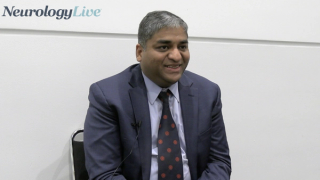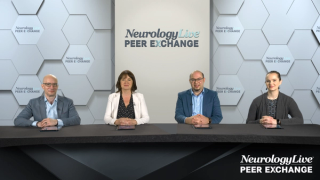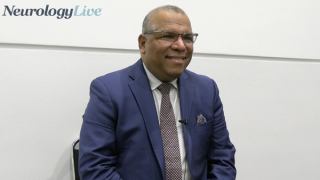
Multiple Sclerosis
Latest News

Latest Videos

CME Content
More News

Efficacy data from a trial examining extended dosing adds to real-world data that demonstrates a significant reduction in the probability of progressive multifocal leukoencephalopathy infection.

Of those who reported new or worsening neurological symptoms, 77.8% didn’t require any additional medication to treat their symptoms.

Jessica L. Stulc, MD, MPH, offered an in-depth review of the latest approved therapies in the sphingosine phosphate 1 targeting class of oral medications for MS including ozanimod (Zeposia; BMS) and ponesimod (Ponvory; Janssen).

The neurologist from Banner Health and chief medical officer of the MS Association of America discussed how much a patients prognosis plays into the treatments utilized.

While rituximab treatment puts patients at a higher risk for infectious disease in general, use of such treatment poses particular risk for severe COVID-19 infections in patients with MS.

Instead of a smooth-contoured, thin, and regular ring or arc typically seen, pattern 3 patients had atypical rings such as irregularly thick rings and arcs.

Orelabrutinib has the potential to inhibit B cell and myeloid cell effector functions in the central nervous system and may provide a clinically meaningful benefit on progression in all forms of MS.

Longer exposure to disease-modifying therapy over the follow-up period reduced the risk of disability worsening among pregnant people with multiple sclerosis.

Robert Zivadinov, MD, PhD, director, Buffalo Neuroimaging Analysis Center, spoke to the findings of a post-hoc analysis of atrophied T2-lesion volume as a biomarker in patients with progressive MS.

A significantly higher percentage of patients treated with ublituximab compared to those on teriflunomide achieved no evidence of disease activity status.

At baseline, a negative correlation was noted between average cognition and VAN importance in both groups, indicating that lower VAN importance is related to a higher average cognition.

The head of global research and executive vice president of Atara Biotherapeutics discussed the upcoming study evaluating ATA188.

These consensus guidelines are significant not only for their key updates to clinical practice but for their representation of a more unified, global approach to diagnosing and monitoring patients with multiple sclerosis.

"Mind Moments," a podcast from NeurologyLive, brings you an exclusive interview with Barry Hendin, MD.

Marisa McGinley, DO, from the Mellen Center for Multiple Sclerosis Treatment and Research at Cleveland Clinic, offered her insight into the manual dexterity test and the need to better prognosticate dexterity issues.

The head of global research and executive vice president of Atara Biotherapeutics discussed the trial design of part 2 of the study of ATA188.

The professor of neurology and director of the Buffalo Neuroimaging Analysis Center discussed the findings of the post-hoc analysis of the ORATORIO study.

The senior director of patient management, care, and rehabilitation research at the National Multiple Sclerosis Society encouraged clinicians to spread word of the need for research.

Environmental factors such as smoking, alcohol consumption, overweight/obese status, and sun exposure were associated with an increased risk of relapsing-onset and progressive-onset MS.

All patients treated with ocrelizumab (Ocrevus; Genentech) were B-cell depleted and had lower SARS-CoV-2 antibody response than any other patients in the study.

The associate professor of Neurology at the Cleveland Clinic Lerner College of Medicine of Case Western Reserve University discussed the potential of a data-driven approach to classifying patients with MS.

Improvements in DMTs and management standards appear to have lowered the risk of progression to EDSS scores of 4.0 and 6.0 for those with pediatric-onset disease.

The staff neurologist at the Mellen Center for Multiple Sclerosis Treatment and Research at Cleveland Clinic discussed how novel dexterity measurements can improve prognostication of disease progression.

The associate professor of Neurology at the Cleveland Clinic Lerner College of Medicine of Case Western Reserve University discussed the findings of his presentation at AAN 2021.

The staff neurologist at the Mellen Center for Multiple Sclerosis Treatment and Research at Cleveland Clinic spoke to a study using the digital Manual Dexterity Test.











